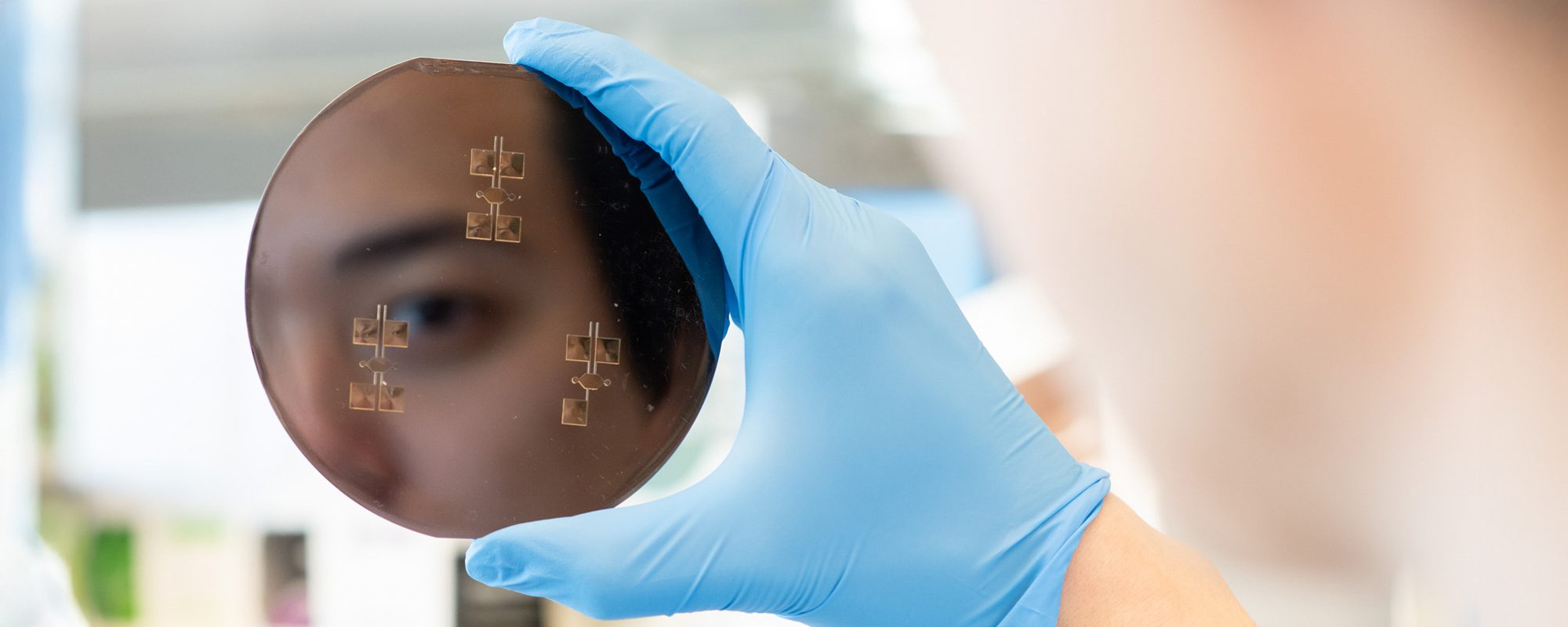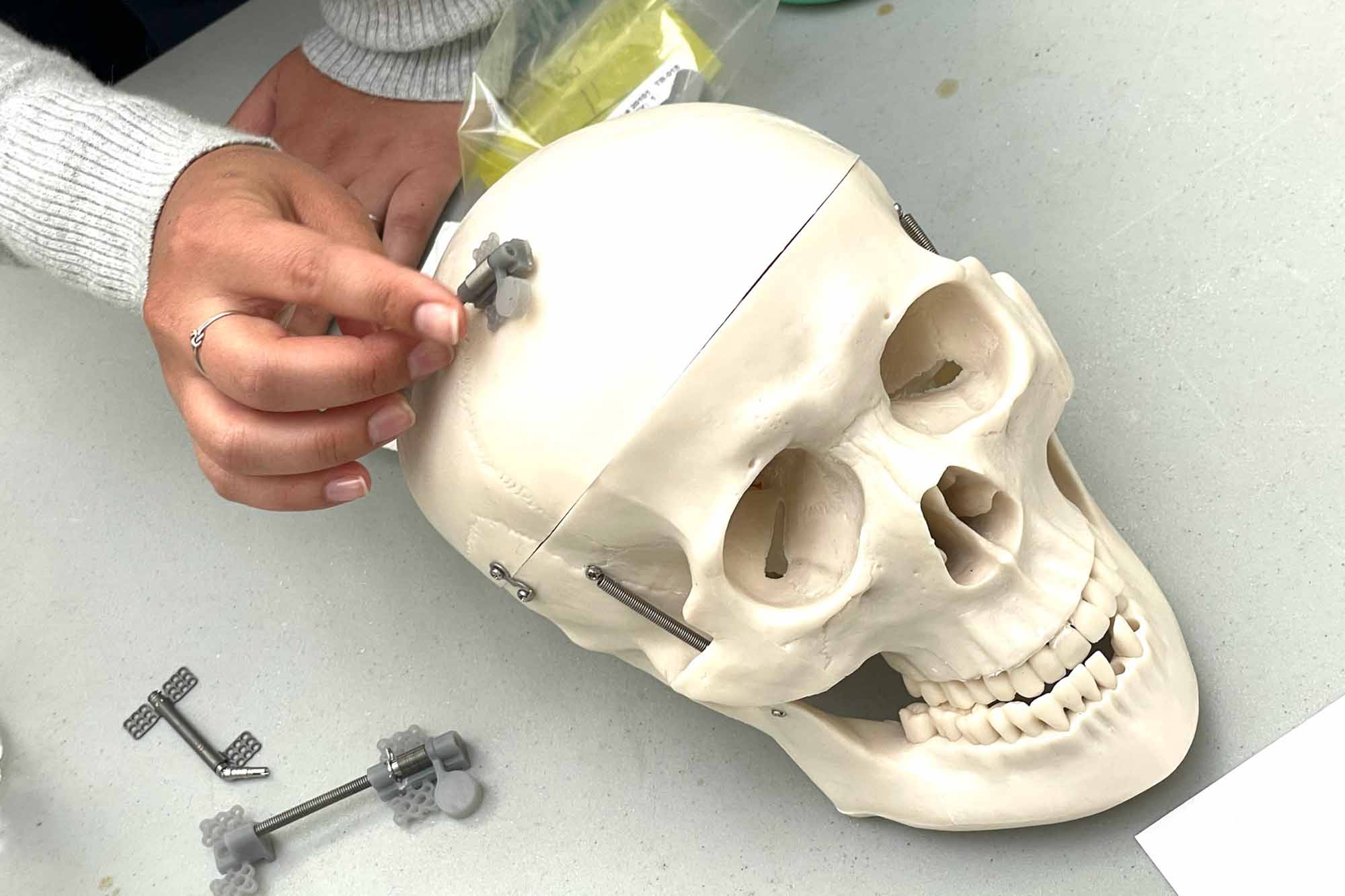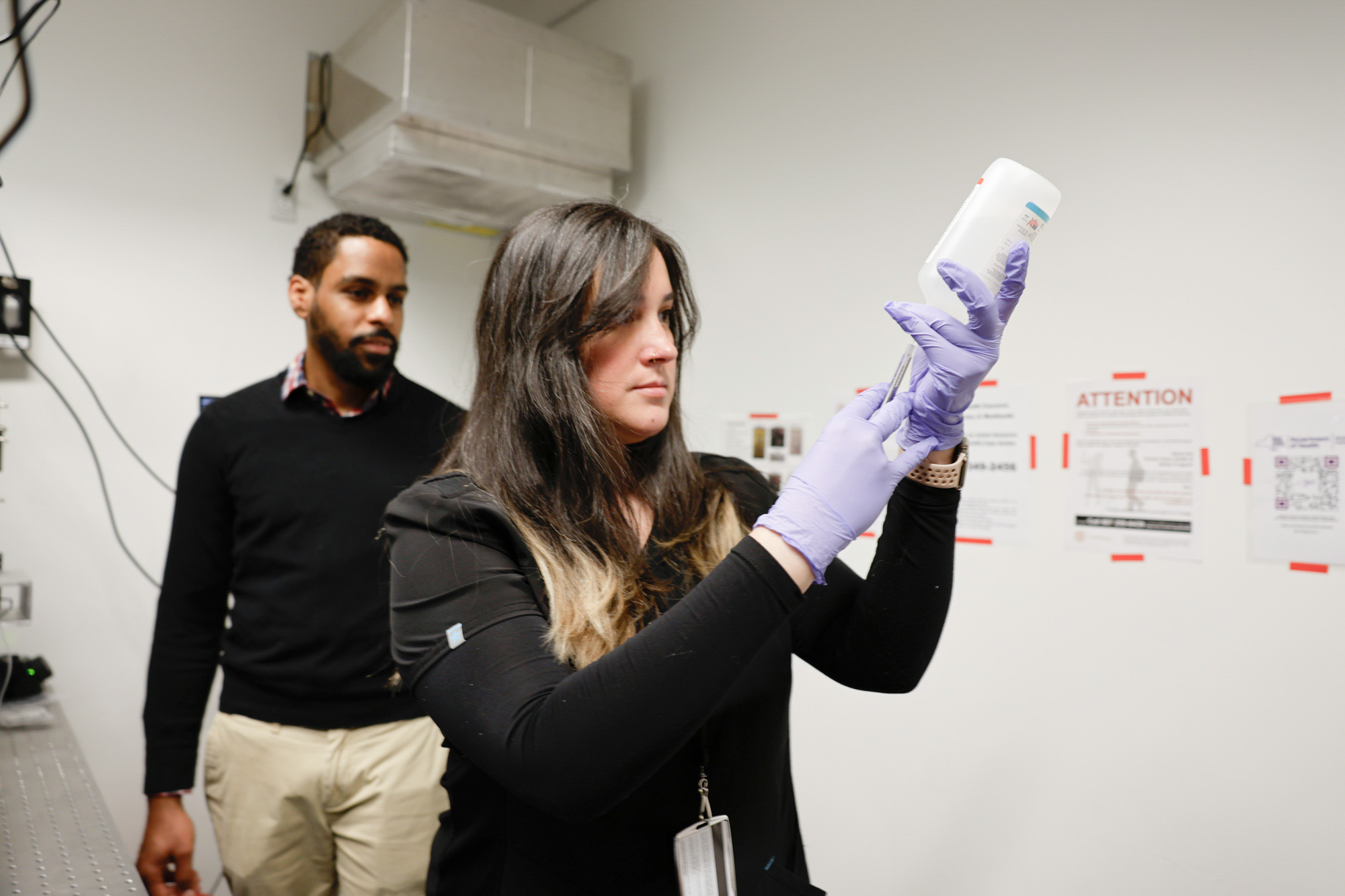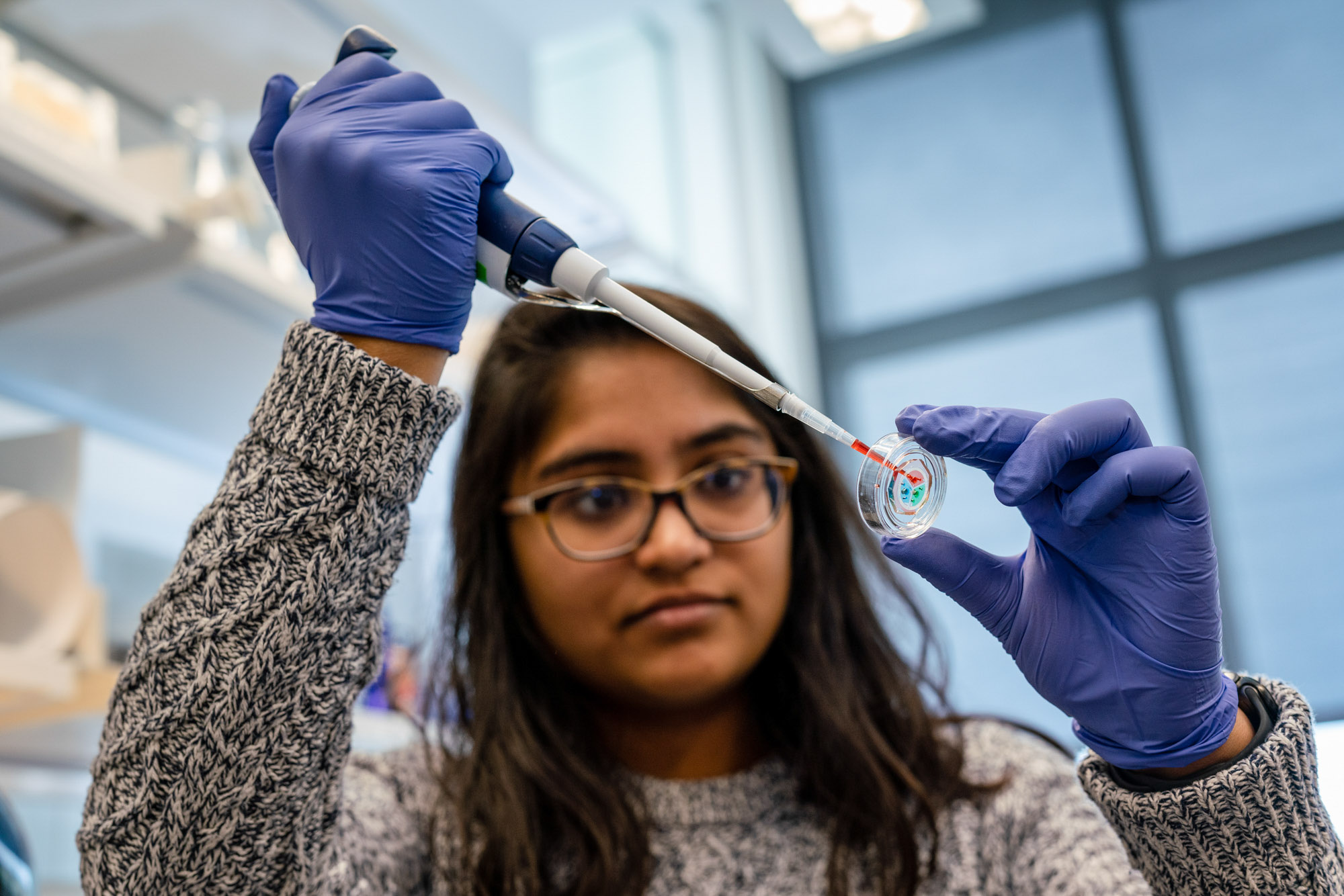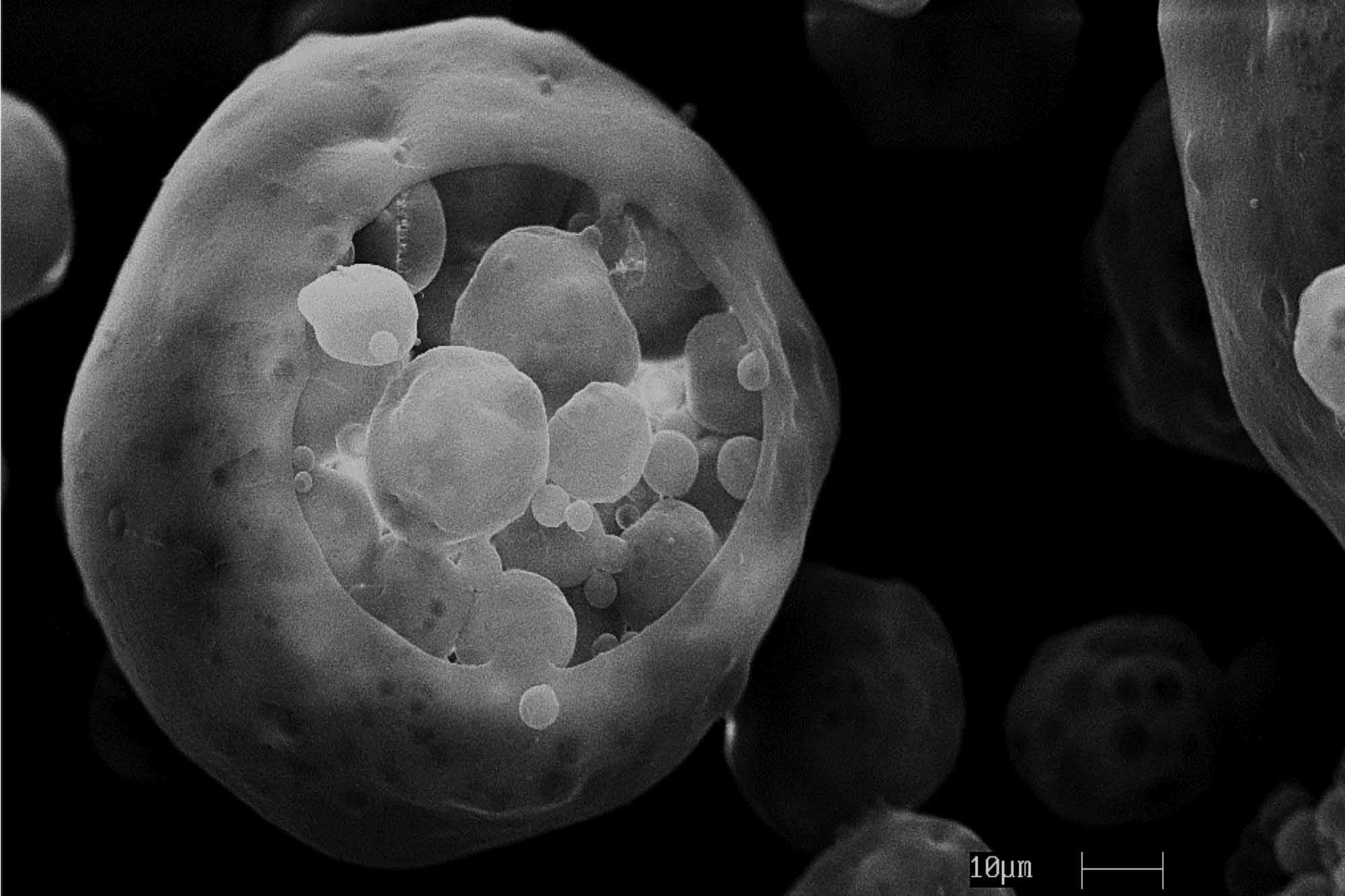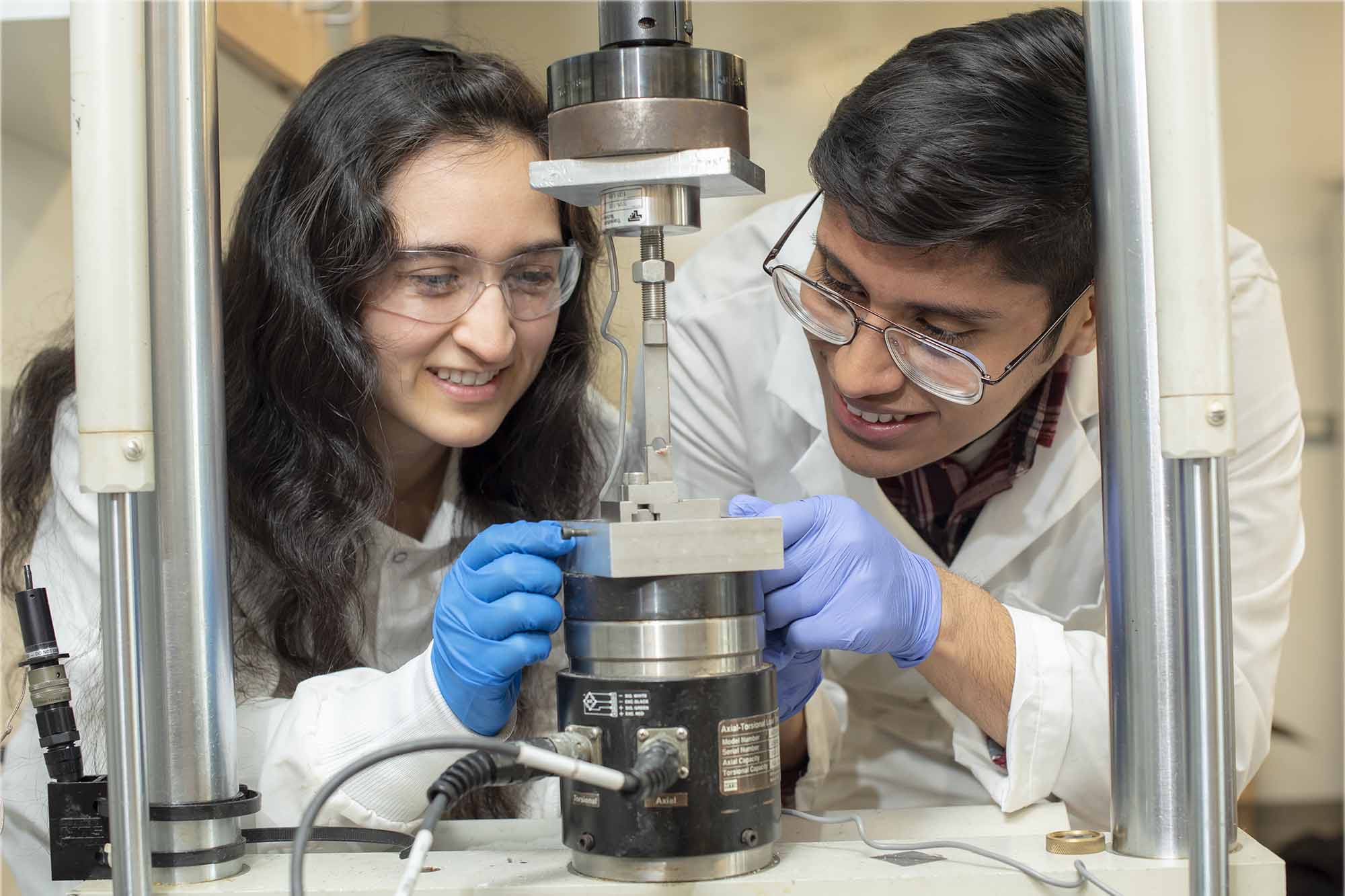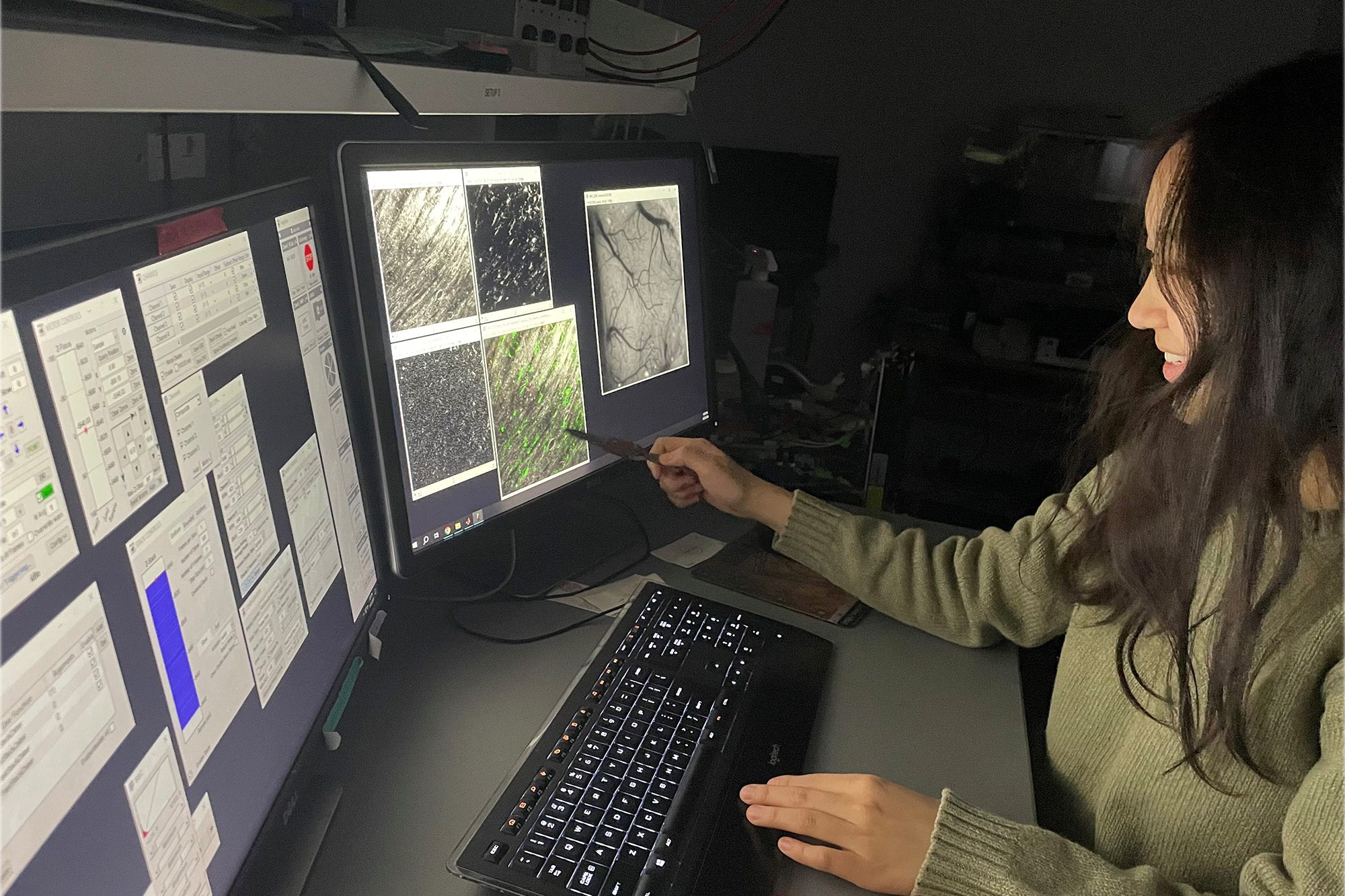Page Contents
Our program trains engineers to integrate disciplines, work in teams, and solve real-world biomedical problems. You can customize your degree to fit your goals through defined career paths and courses, and by engaging in experiential learning, leadership, and social activities.
Explore Cornell’s biomedical engineering course offerings to tailor our program to your particular career or research interests and goals.
Ways to Use the Biomedical Engineering Degree
Curriculum
Biomedical engineers bring specialized expertise to tackle the ever-evolving challenges of human health and disease. In this dynamic field, they design innovative, resilient solutions that make a real difference. Our curriculum is designed to provide the unique training needed to excel in this transformative discipline.
Our curriculum equips you with the knowledge and skills to excel in the field. Four initial cornerstone courses provide a strong foundation in key concepts and skills across four concentrations. Core classes focus on applying quantitative engineering principles to biomedical systems, covering scales from atomic to organ levels, with topics like molecular and cellular engineering and physiological models. After familiarizing yourself with the opportunities and challenges of the four cornerstone courses, you will choose a biomedical engineering concentration.
Courses
Our courses deliver the knowledge and technical depth expected of all biomedical engineering graduates. Review the biomedical engineering major degree requirements and the most recent version of the Cornell Engineering Undergraduate Handbook at the following pages for degree requirements and coursework details.
“One of the most important skills I’ve learned in this major is flexibility. Not everything we try in science will always work, and learning to adapt to changing situations is something that I have gained from coursework, research, and internship experience in this program.”
Riya Singh Undergraduate Student

Experiential Learning
In your sophomore year, you’ll take a year-long course focusing on experiential learning (BME 2080). This course helps you apply what you’ve learned and develop key professional skills for science and community work. Experts will guide you through activities and discussions, covering team work and self-assessment. For more on social learning opportunities at Cornell, check out Undergraduate Student Experience.
Concentrations
In junior year, you’ll specialize in one of four biomedical engineering concentrations, taking field-specific courses that emphasize engineering theory and skills essential for career success. Knowledge in each of these concentrations will ensure that you graduate with both a broad foundation in biomedical engineering and deep expertise in a specific area, making you well-prepared for the diverse opportunities in the field.
Capstone Laboratory Practice Courses
Your chosen concentration culminates in a hands-on laboratory practicum in your senior year, in which you to design and build innovative technologies specific to your area of expertise. This senior design sequence (BME 4080/4090) brings all the knowledge together in a year long collaborative design project where you’ll collaborate with peers from different concentrations to break down a problem and engineer a robust solution to meet that need.
How to Affiliate
All admitted Cornell Engineering students start without a declared major to explore options. They take core math and science courses, engineering distribution courses, and writing seminars before choosing a major in their third semester (fall of sophomore year).
The particular course selection required for affiliation into each major is largely overlapping but not identical. For biomedical engineering, we require math, biology, chemistry and physics training, in addition to computer science.
-
Affiliation Eligibility Requirements.
See the Biomedical Engineering B.S. degree requirements for affiliation eligibility requirements.
-
Ready to Affiliate?
Cornell freshmen and sophomores interested in affiliating with biomedical engineering should contact the undergraduate coordinator.
Undergraduate Program Contact
Ready to affiliate? Cornell freshmen and sophomores interested in affiliating with biomedical engineering should contact the undergraduate coordinator:
-
Undergraduate Program Coordinator
Eva Collier
Weill Hall, Room 121B
607-254-3368
bmeugrad@cornell.edu
